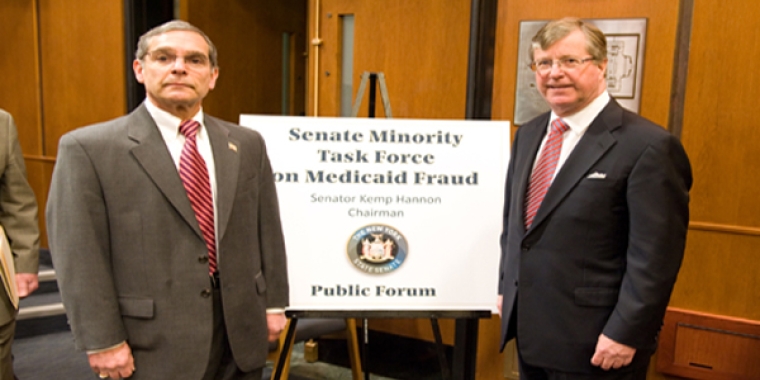
NY's Business Climate? Dead Last in America
George Winner
November 1, 2010
-
ISSUE:
- Economic Development

So what’s the latest piece of evidence to back up the belief that New York State really has its work cut out?
You could make a strong argument that the answer to that question can be found within newspaper headlines like the following one that appeared in our region late last week, “New York has worst climate for business.”
The accompanying article highlighted the most recent report from the Tax Foundation, which found that New York’s ranking fell, from 49th to 50th, among states with the worst tax climate in the nation. It wasn’t good before, but it just became worse: Dead last in the nation.
It spells trouble for the state economy and points to the overriding need for reform, and fast.
The head of the state Business Council, which has been pressing a series of badly needed reforms, reacted to the latest Tax Foundation report by saying, again, that it sends a “clear message that business as usual must end in Albany.”
Back in February, New York Governor David Paterson travelled to the city of Rochester and announced that, according to his economic forecasters, New York State lost nearly 270,000 private-sector jobs between 2008 and 2009. He added that we were on track for an additional 40,000 losses this year.
The losses have been acute across our region – nearly 11,000 job losses in the Southern Tier region, and another 20,000 throughout the Finger Lakes.
Let’s be clear: Albany has failed to recognize the importance of private-sector economic growth as one fundamental way to effectively find a way out of the current economic and fiscal crisis. For the past two years, the state’s current leaders have tried to tax and spend their way out of it, and it hasn’t worked.
Arguably, as evidenced by the latest Tax Foundation ranking, it’s only made it worse.
On the very same day that Governor Paterson made his visit to Rochester in February, I joined my Senate Republican colleagues to propose a new economic strategy for New York – one that we believe has been overlooked as a way to help New York strengthen its economy, lower taxes, and begin to create thousands of jobs across the upstate region.
Our jobs plan, which went nowhere this year, remains relevant moving on to the beginning of the 2011 legislative session as a way to refocus the debate and inject some different thinking and maybe some better economic sense into the discussion. It includes proposals to:
-- establish a permanent, Constitutionally mandated cap on state spending that would limit year-to-year spending increases to no more than four percent, a move that would have saved state taxpayers more than $13 billion if it had been in place over the past five years;
-- establish a new Job Creation Tax Credit offering businesses, manufacturers, and other private-sector employers a refundable tax credit of up to a maximum of $5,000 for every new job they create. The tax credit would be recurring for three years and would only be provided for new jobs that expand total payroll, equal to the amount of tax withholding for each new job. For example, a new job paying $30,000 would provide an employer with a tax credit of about $1,150;
-- enact a five-year moratorium on any new taxes or fees on small businesses, manufacturers, and farms, eliminate the existing corporation franchise tax for small businesses, and more quickly phase out last year’s personal income tax increase for small businesses; and
-- enact a five-year moratorium on any new, state-imposed business regulations and red tape, together with the creation of state-level commission to identify state rules and regulations that continue to stand as obstacles to sustained economic growth and job creation.
The Senate Republican jobs plan drew some positive reviews, including one from the Business Council which said that the plan would remove “barriers to job growth” and give more New Yorkers “hope and opportunity.”
-30-
Share this Article or Press Release
Newsroom
Go to NewsroomFor The Third Time
October 20, 2010

New York's No. 1 Industry?
October 14, 2010

Credit Where It's Due
October 4, 2010

